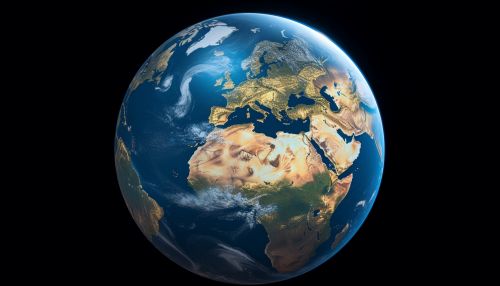Continent
Definition
A continent is one of several large landmasses on Earth's surface. Generally identified by convention rather than any strict criteria, continents are understood to be large, continuous, discrete masses of land, ideally separated by expanses of water.
Number of Continents
There are seven continents on Earth: Asia, Africa, North America, South America, Antarctica, Europe, and Australia. The exact number can vary by context, due to various geographical and cultural perspectives. Some consider Europe and Asia to be two parts of the same continent, known as Eurasia, while others consider North and South America to be a single continent, America.


Geology
Continents are primarily composed of rock and Earth's crust. The rocks of the continents are much older than those of the oceanic crust. The oldest continental rocks are nearly 4 billion years old, while the oldest oceanic crust is less than 200 million years old. This is because the oceanic crust is constantly being recycled by plate tectonics, while the continental crust is not.
Climate and Biodiversity
The climate and biodiversity of each continent are influenced by its size, shape, and position on Earth. For example, Africa, which straddles the equator, has a hot, tropical climate and is home to a diverse range of species. In contrast, Antarctica, which is located at the South Pole, has an extremely cold climate and a much less diverse range of species.
Human Geography
Each continent has its own unique human geography, which includes its demographic characteristics, culture, economy, and political systems. For example, Asia is the most populous continent, with more than 4 billion people, while Antarctica has no permanent human population.
History
The concept of continents dates back to ancient times, when mariners and geographers used the term to refer to the landmasses that surrounded the Mediterranean Sea. The understanding of continents has evolved over time, with the discovery of new lands and the development of scientific understanding of the Earth's structure.
